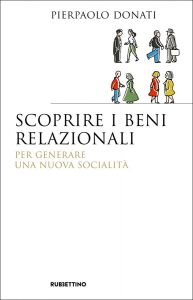Relational goods
The concept of “relational good” is introduced in the debate of economics in the mid eighties of the twentieth century by sociologists such as Pierpaolo Donati , by philosophers as Marta Nussbaum and by economists as Benedetto Gui for whom such goods are those human experiences where it’s the relationship itself that constitutes the good and the relationship isn’t a functional tool for economic exchange.
Relational goods are made of those goods that can be produced and consumed in an optimal way only together by those who are at the same time its producers and consumers through relations that link those involved.
That is to say, It’s about those goods whose essence is given by the quality of relationship that it’s established between producer and consumer: educational, health, care and cultural services.
Friendship, trust, happiness, eudemonic work are as many examples of relational goods.
Relational goods are technically goods that have the following characteristic: the benefit that they commit on those who consume them depends on the particular relationship that is established between those who offer and those who demand relational goods. This means that the procedure in the relational good matters: the way the good is given or produced and the way it is consumed matter for the purpose of utility creation.
It’s not like this for the private goods, whose utility is inherent, linked to the property they have, regardless of the way they are provided.

For further information
P. Donati, Scoprire i beni relazionali, Rubbettino, Catanzaro 2019

